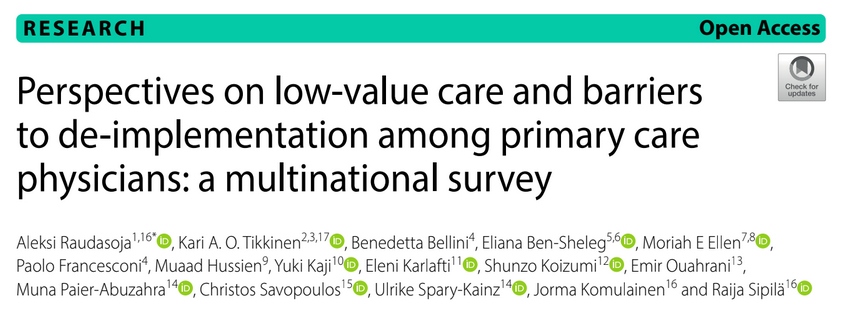
The results of the multinational primary care survey defined within the Choosing Wisely International network, the University of Helsinki and the Finnish Medical Society Duodecim have been published:
Perspectives on low-value care and barriers to de-implementation among primary care physicians: a multinational survey (BMC Primary Care, biomedcentral.com).
The survey, aimed at primary care physicians, intended to explore attitudes towards low-value care and identify the most important barriers to the de-implementation of low-value care use in primary care in high-income countries. It was carried out through an online questionnaire regarding: knowledge of Choosing Wisely recommendations, attitudes towards overdiagnosis and overtreatment, barriers to deimplementation of low value care.
Six high-income countries participated: Austria, Finland, Greece, Italy, Japan and Sweden. Differences have emerged among different countries.
According to the article’s conclusions, more than 80% of primary care physicians consider overtreatment and overdiagnosis as a problem in their country’s healthcare but fewer (around 50%) in their own practice. Lack of time, fear of error, and patient pressures are common barriers to de-implementation in high-income countries and should be acknowledged when planning future healthcare. Due to the wide variety of barriers to de-implementation and differences in their importance in different contexts, understanding local barriers is crucial when planning de-implementation strategies.
For Italy, the Regional Health Agency of Tuscany (ARS) participated with Paolo Francesconi and Benedetta Bellini; Slow Medicine/Choosing Wisely Italy, with Paola Mosconi and Sandra Vernero, contributed to the research.


Recent Comments